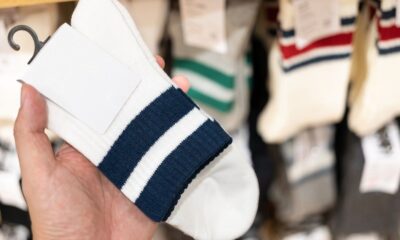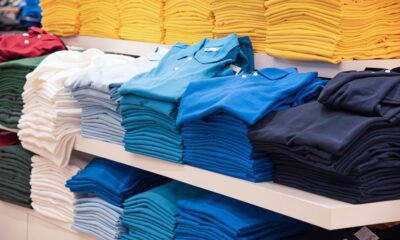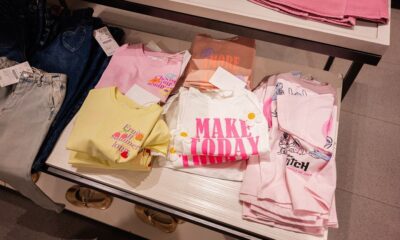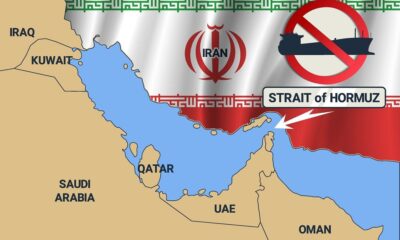Fashion
Founder Ahlem Manai-Platt talks new Ahlem store in Los Angeles
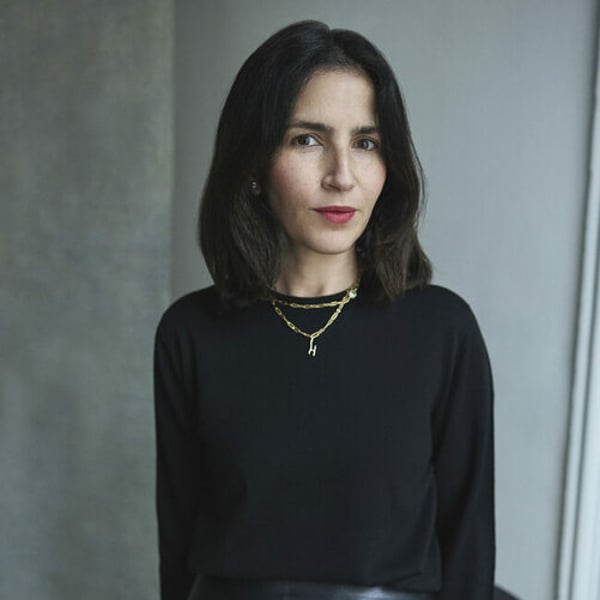
Published
October 1, 2025
Nine years after opening her first store in Venice, Los Angeles, eyewear designer Ahlem Manai-Platt will open a second location in Melrose Place in a few weeks, her fifth worldwide after Paris, New York, and San Francisco. Having partnered with investment group 1686 a few months ago, the designer has new projects in the works.
FashionNetwork.com met with the designer in Los Angeles.
FashionNetwork: You are opening your second store in Melrose Place soon. Why did you choose a second location in Los Angeles, and why did you choose the Melrose Place neighborhood?
Ahelm Manai-Platt: Los Angeles is a city that holds a very special place in my history. It’s where it all began for Ahlem, where I took the risk of launching the brand without a specific plan, simply with the intuition that something had to exist differently. It’s also a city that has given me immense freedom—a more instinctive, less codified way of living and creating. The first boutique on Abbot Kinney had that pioneering energy. Melrose Place is another step forward. It’s a place that speaks more of maturity, elegance, and intimacy. I wanted to create a space that reflects the brand’s evolution and tells another facet of its story.
FNW: Each boutique you open has its own particular design style. What can we expect from your Melrose Place location?
A.M.P.: For me, each store is like a page in a diary: it has to reflect my state of mind at the time of its creation. Melrose Place will be very different from the others. The idea was to create a place that doesn’t look like a store but more like a domestic space, like a quiet house where every detail has a purpose. The materials will be noble, raw, timeless: metal, wood, and plaster. The atmosphere will be both soothing and intense, very refined but never cold. I want people to feel comfortable there, to want to stay—even without buying anything.
FNW: A bespoke service will also be offered in-store. What does this involve and why focus on bespoke services?
A.M.P.: Bespoke services probably best embody what I love about this profession: human interaction, dialogue, and creativity that arises from an encounter. It goes far beyond the product: it’s about listening to a personality, understanding a look, a gesture, a world, and then giving shape to all of that in a frame. It’s also a way of resisting the idea of fast consumption. Creating a unique object takes time, attention, and care. And that’s exactly what I want to defend.
FNW: Los Angeles is the city where it all began for you. You also lived there for a few years. Is California a key market for your brand?
A.M.P.: Yes, of course. But beyond the market, it’s above all an emotional place for me. It’s a city that shaped my vision: the relationship with light, space, and time. Everything is different there. California also has this very free way of appropriating objects—without codes, without snobbery—and that deeply corresponds to what I wanted to create with Ahlem: glasses that you wear naturally, because they become a part of you.

FNW: Other openings are planned in the United States. Which cities are you targeting and what is your overall strategy for the American market?
A.M.P.: There will be a second store in NYC, of course. Chicago too. But I’m not looking to open stores everywhere. Each opening must make sense, tell a story, and extend our universe. The idea is to create few, but very good ones. Our goal is to build deeply rooted places that become meeting points with our community.
FNW: You are leaving for Japan in a few days. How do you explain the Japanese enthusiasm for your brand?
A.M.P.: I think the Japanese can immediately sense when something is sincere. They have a culture of craftsmanship, precision, and skill, which resonates deeply with our way of working. They notice the details, even those that are left unsaid.
FNW: Do you have ambitions to open stores in Japan as well?
A.M.P.: Yes, there will probably be an opening there. I would like to create a place in Tokyo that is a kind of silent, almost spiritual temple, centered around the idea of the gaze.
FNW: Generally speaking, is the Asian market, including China and Korea, a key area of development for you?
A.M.P.: Absolutely. But once again, I don’t approach things solely from a commercial perspective. Asia has a very strong appreciation for well-made objects, authentic craftsmanship, and brands with soul. It’s this audience that I want to reach, rather than focusing on volumes or figures.

FNW: You have partnered with the 1686 investment group for several months now. How is your relationship going?
A.M.P.: I never imagined opening up my capital. I have always been very independent. But I really connected with them on a personal level. They understand my vision, they respect my creative process, and above all, they don’t try to change it. This partnership was born out of a desire to grow without betraying myself. And so far, it’s working very well.
FNW: Is retail development one of the main objectives of this partnership, and what overall strategy are you planning together?
A.M.P.: Yes, it’s an important part of the project, but it’s not the only one. It’s also about consolidating the brand, strengthening our teams, continuing to manufacture better, and creating even more exceptional products. We want to build something sustainable and solid that will still be relevant in ten or twenty years’ time.
FNW: In terms of products, are there any developments or new releases to look forward to?
A.M.P.: Always. That’s what drives me forward. There are new materials, new shapes, unexpected collaborations. And above all, the desire to push the boundaries even further. I also want to explore more bespoke designs and very limited series, almost like works of art. It’s a direction that fascinates me.
FNW: Five years after leaving Los Angeles, how do you feel in Paris? No regrets about leaving California?
A.M.P.: No regrets. Paris is my city. It shaped me, it sometimes hurt me, but above all it gave me a depth that I wouldn’t have found anywhere else. This is where I feel legitimate, aligned, rooted. And even though California continues to live within me, Paris is the only place where I can create with my whole truth.
Copyright © 2025 FashionNetwork.com All rights reserved.
Fashion
India’s real GDP estimated to grow 7.6% in FY26 under new base FY23
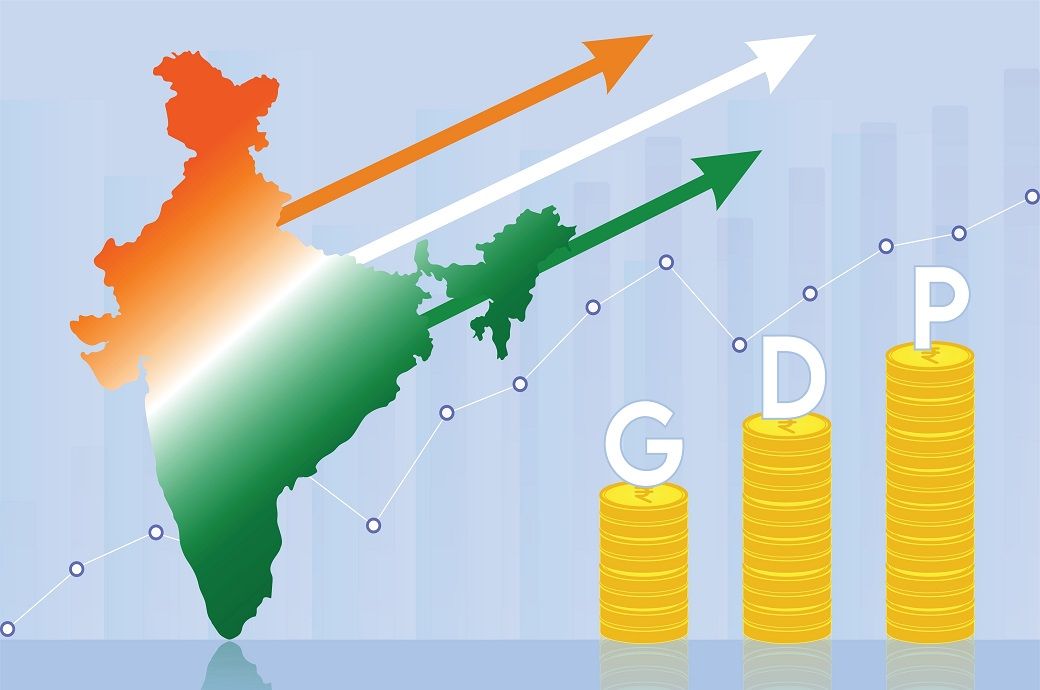
Nominal GDP, or GDP at current prices, is estimated to grow at 8.6 per cent to reach ₹345.47 trillion in FY26 against ₹318.07 trillion in 2024-25.
India’s real GDP is estimated to grow at 7.6 per cent to ₹322.58 trillion (~$3.54 billion) in FY26 compared to the first revised GDP estimate of ₹299.89 trillion for FY25 (7.1 per cent growth).
It released the new series of annual and quarterly national accounts estimates with FY23 base.
Real GVA is projected to grow at 7.7 per cent to reach ₹294.40 trillion in FY26 against ₹273.36 trillion in FY25.
Real gross value added (GVA) is projected to grow at 7.7 per cent to reach ₹294.40 trillion in FY26 against ₹273.36 trillion in FY25 (a 7.3-per cent growth rate).
Nominal GVA is estimated to grow at 8.7 per cent to hit ₹313.61 trillion during FY26, against ₹288.54 lakh crore in 2024-25.
Robust economic performance in FY26 is primarily on account of robust real growth observed in the second quarter (8.4 per cent) and third quarter (7.8 per cent).
The manufacturing sector has been the major driver of resilient performance of the economy the consecutive three fiscals after rebasing, a release from the ministry said.
Both private final consumption expenditure and grossed fixed capital formation exhibited more than 7-per cent growth rate in FY26.
Fibre2Fashion News Desk (DS)
Fashion
South Korea’s Misto Holdings completes planned leadership transition
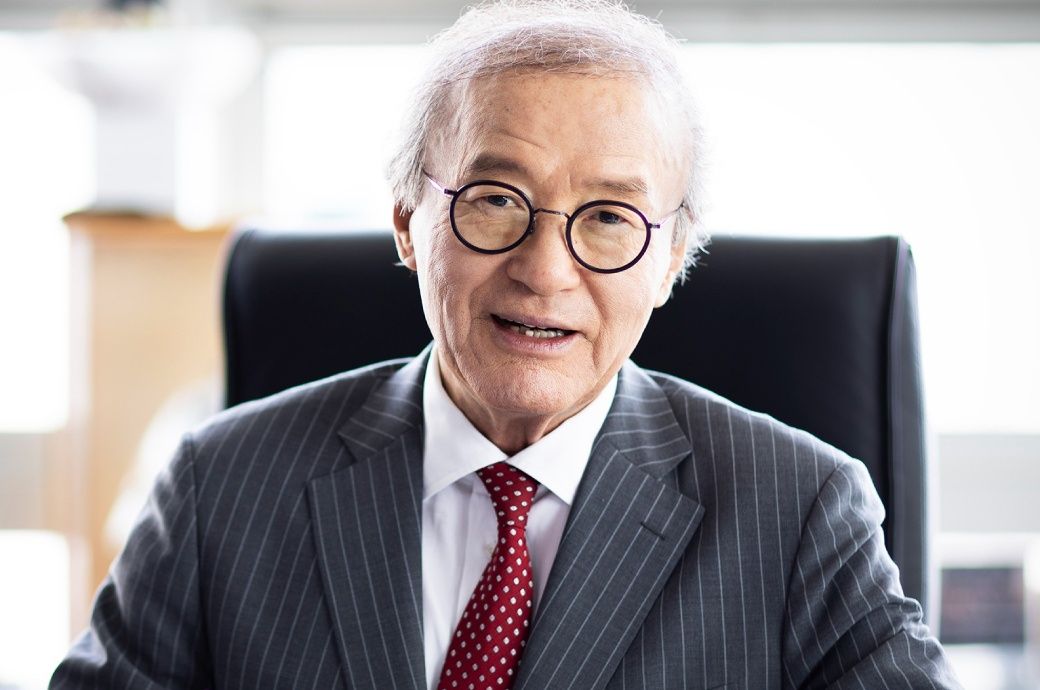
The transition marks the formal handover of executive leadership to President and CEO Keun-Chang (Kevin) Yoon, reinforcing management continuity while preserving the founder’s long-term strategic vision.
Misto Holdings founder Gene Yoon has transitioned to honorary chairman in a planned leadership succession, formally handing executive control to president and CEO Kevin Yoon.
The founder, who expanded the group through the FILA global trademark acquisition and the takeover of Acushnet, will continue guiding long-term strategy as the rebranded Misto focuses on governance and sustainable growth.
Gene Yoon founded the business that would become Misto Holdings in the early 1990s, introducing the FILA brand to the Korean market and later leading a series of transformative transactions. In 2007, the company acquired the global FILA trademark rights through a leveraged buyout, followed by the 2011 acquisition of Acushnet Company, owner of the Titleist and FootJoy brands. The transaction was among the largest cross-border deals in Korea’s consumer sector at the time and significantly expanded the group’s global footprint.
Under his leadership, the company evolved into a multi-brand global portfolio spanning sportswear, golf equipment and apparel, generating approximately USD 3.08 billion in annual revenue.
As Honorary Chairman, Gene Yoon will remain closely engaged with the company, providing guidance on long-term strategy and global portfolio development while supporting management from a broader strategic perspective.
The leadership transition marks a new chapter under President and CEO Kevin Yoon, who has spent nearly two decades in senior roles across the group’s global operations, building deep operational and strategic expertise.
The company’s 2025 rebranding to “Misto” underscores its evolution into a global brand house focused on disciplined capital allocation, enhanced shareholder returns and sustainable long-term growth.
“Building on the founder’s legacy, our priority is to expand our global portfolio, strengthen governance and deliver sustainable value creation,” said Kevin Yoon, President and CEO of Misto Holdings.
Note: The headline, insights, and image of this press release may have been refined by the Fibre2Fashion staff; the rest of the content remains unchanged.
Fibre2Fashion News Desk (RM)
Fashion
Bangladesh commerce minister seeks Chinese investment in jute sector
-

 Tech1 week ago
Tech1 week agoA $10K Bounty Awaits Anyone Who Can Hack Ring Cameras to Stop Sharing Data With Amazon
-

 Business1 week ago
Business1 week agoUS Top Court Blocks Trump’s Tariff Orders: Does It Mean Zero Duties For Indian Goods?
-

 Fashion1 week ago
Fashion1 week agoICE cotton ticks higher on crude oil rally
-

 Politics6 days ago
Politics6 days agoPakistan carries out precision strikes on seven militant hideouts in Afghanistan
-

 Tech1 week ago
Tech1 week agoDonald Trump Jr.’s Private DC Club Has Mysterious Ties to an Ex-Cop With a Controversial Past
-

 Entertainment1 week ago
Entertainment1 week agoThe White Lotus” creator Mike White reflects on his time on “Survivor
-

 Business7 days ago
Business7 days agoEye-popping rise in one year: Betting on just gold and silver for long-term wealth creation? Think again! – The Times of India
-
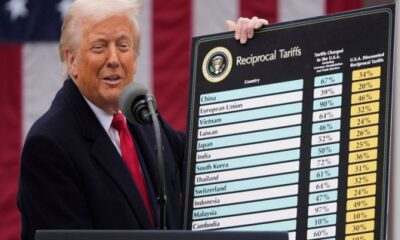
 Politics1 week ago
Politics1 week agoUS Supreme Court strikes down Trump’s trade tariff measures


